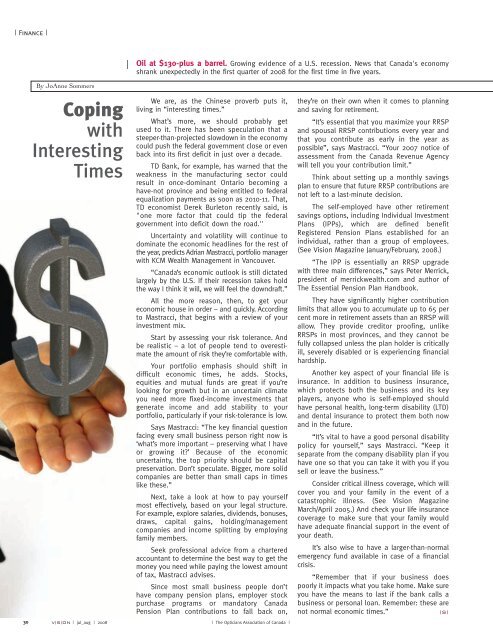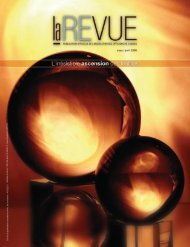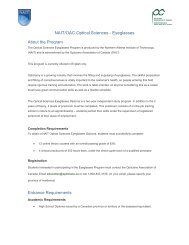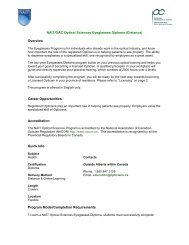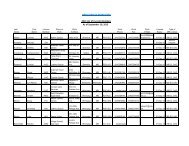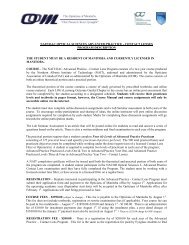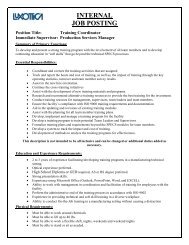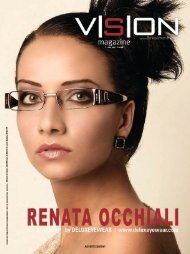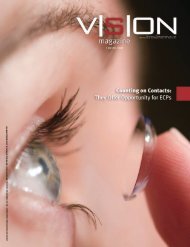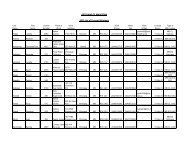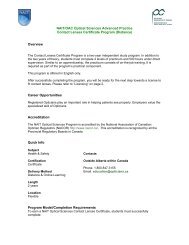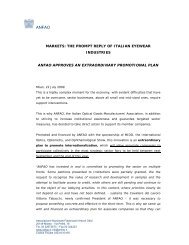Bionic Eye
Bionic Eye
Bionic Eye
Create successful ePaper yourself
Turn your PDF publications into a flip-book with our unique Google optimized e-Paper software.
| Finance |<br />
30<br />
By JoAnne Sommers<br />
Coping<br />
with<br />
Interesting<br />
Times<br />
|<br />
Oil at $130-plus a barrel. Growing evidence of a U.S. recession. News that Canada's economy<br />
shrank unexpectedly in the first quarter of 2008 for the first time in five years.<br />
We are, as the Chinese proverb puts it,<br />
living in “interesting times.”<br />
What’s more, we should probably get<br />
used to it. There has been speculation that a<br />
steeper-than-projected slowdown in the economy<br />
could push the federal government close or even<br />
back into its first deficit in just over a decade.<br />
TD Bank, for example, has warned that the<br />
weakness in the manufacturing sector could<br />
result in once-dominant Ontario becoming a<br />
have-not province and being entitled to federal<br />
equalization payments as soon as 2010-11. That,<br />
TD economist Derek Burleton recently said, is<br />
"one more factor that could tip the federal<br />
government into deficit down the road.''<br />
Uncertainty and volatility will continue to<br />
dominate the economic headlines for the rest of<br />
the year, predicts Adrian Mastracci, portfolio manager<br />
with KCM Wealth Management in Vancouver.<br />
“Canada’s economic outlook is still dictated<br />
largely by the U.S. If their recession takes hold<br />
the way I think it will, we will feel the downdraft.”<br />
All the more reason, then, to get your<br />
economic house in order – and quickly. According<br />
to Mastracci, that begins with a review of your<br />
investment mix.<br />
Start by assessing your risk tolerance. And<br />
be realistic – a lot of people tend to overestimate<br />
the amount of risk they’re comfortable with.<br />
Your portfolio emphasis should shift in<br />
difficult economic times, he adds. Stocks,<br />
equities and mutual funds are great if you’re<br />
looking for growth but in an uncertain climate<br />
you need more fixed-income investments that<br />
generate income and add stability to your<br />
portfolio, particularly if your risk-tolerance is low.<br />
Says Mastracci: “The key financial question<br />
facing every small business person right now is<br />
‘what’s more important – preserving what I have<br />
or growing it?’ Because of the economic<br />
uncertainty, the top priority should be capital<br />
preservation. Don’t speculate. Bigger, more solid<br />
companies are better than small caps in times<br />
like these.”<br />
Next, take a look at how to pay yourself<br />
most effectively, based on your legal structure.<br />
For example, explore salaries, dividends, bonuses,<br />
draws, capital gains, holding/management<br />
companies and income splitting by employing<br />
family members.<br />
Seek professional advice from a chartered<br />
accountant to determine the best way to get the<br />
money you need while paying the lowest amount<br />
of tax, Mastracci advises.<br />
Since most small business people don’t<br />
have company pension plans, employer stock<br />
purchase programs or mandatory Canada<br />
Pension Plan contributions to fall back on,<br />
VISION | jul_aug | 2008 | The Opticians Association of Canada |<br />
they’re on their own when it comes to planning<br />
and saving for retirement.<br />
“It’s essential that you maximize your RRSP<br />
and spousal RRSP contributions every year and<br />
that you contribute as early in the year as<br />
possible”, says Mastracci. “Your 2007 notice of<br />
assessment from the Canada Revenue Agency<br />
will tell you your contribution limit.”<br />
Think about setting up a monthly savings<br />
plan to ensure that future RRSP contributions are<br />
not left to a last-minute decision.<br />
The self-employed have other retirement<br />
savings options, including Individual Investment<br />
Plans (IPPs), which are defined benefit<br />
Registered Pension Plans established for an<br />
individual, rather than a group of employees.<br />
(See Vision Magazine January/February, 2008.)<br />
“The IPP is essentially an RRSP upgrade<br />
with three main differences,” says Peter Merrick,<br />
president of merrickwealth.com and author of<br />
The Essential Pension Plan Handbook.<br />
They have significantly higher contribution<br />
limits that allow you to accumulate up to 65 per<br />
cent more in retirement assets than an RRSP will<br />
allow. They provide creditor proofing, unlike<br />
RRSPs in most provinces, and they cannot be<br />
fully collapsed unless the plan holder is critically<br />
ill, severely disabled or is experiencing financial<br />
hardship.<br />
Another key aspect of your financial life is<br />
insurance. In addition to business insurance,<br />
which protects both the business and its key<br />
players, anyone who is self-employed should<br />
have personal health, long-term disability (LTD)<br />
and dental insurance to protect them both now<br />
and in the future.<br />
“It’s vital to have a good personal disability<br />
policy for yourself,” says Mastracci. “Keep it<br />
separate from the company disability plan if you<br />
have one so that you can take it with you if you<br />
sell or leave the business.”<br />
Consider critical illness coverage, which will<br />
cover you and your family in the event of a<br />
catastrophic illness. (See Vision Magazine<br />
March/April 2005.) And check your life insurance<br />
coverage to make sure that your family would<br />
have adequate financial support in the event of<br />
your death.<br />
It’s also wise to have a larger-than-normal<br />
emergency fund available in case of a financial<br />
crisis.<br />
“Remember that if your business does<br />
poorly it impacts what you take home. Make sure<br />
you have the means to last if the bank calls a<br />
business or personal loan. Remember: these are<br />
not normal economic times.” ISI


